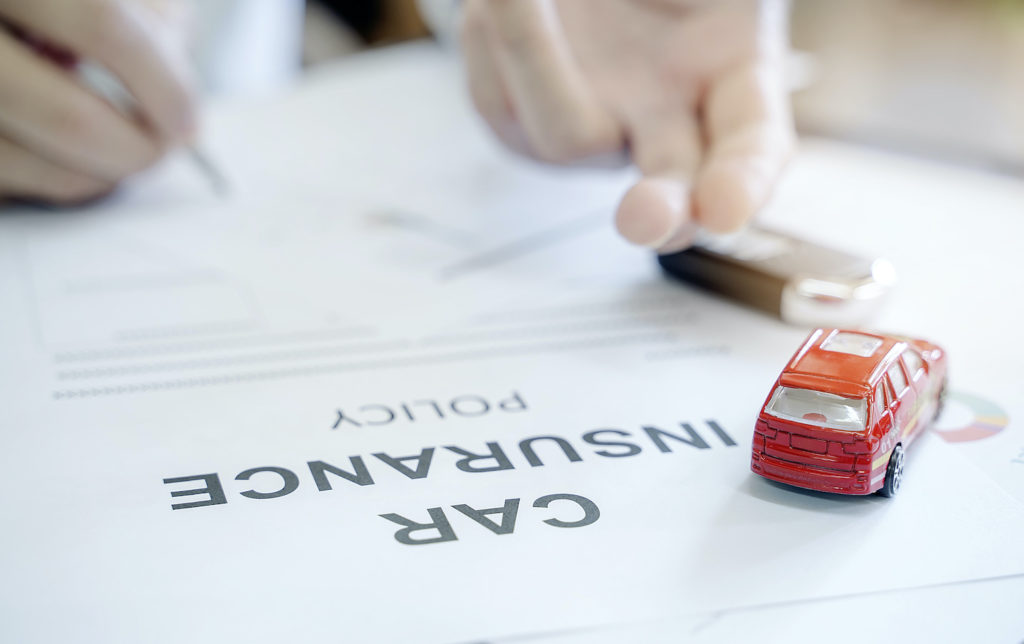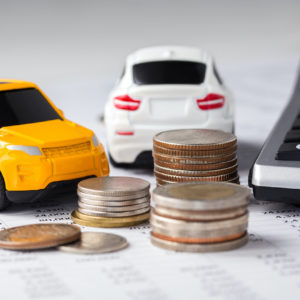Travel restrictions and stay-at-home orders placed across the country to curb the spread of COVID-19 have resulted in fewer cars on the road. As a result, this has led to a decline in car crash rates and traffic-related injuries in the US.
This reduction in the number of road accidents means insurance companies have fewer claims to pay out. Several groups, like the Consumer Federation of America and the Center for Economic Justice, have called on state insurance departments as well as car insurers to offer refunds and discounts to policyholders, which is exactly what some of them have begun to do.

Your COVID-19 refund will depend on your insurance company and the state you live in. It could be in the form of a rebate, payment relief, or extended coverage.
Which Auto Insurers are Offering Refunds or Discounts During COVID-19?
If you’re wondering whether your auto insurance company will be refunding or discounting premiums during the coronavirus lockdown, below is a list of insurers that have released guidelines on refunds and other customer programs as of this article’s publishing*.
If you don’t find your insurer on this list, you can contact the company and ask about its plans for customers like you.
Allstate
Allstate’s personal auto insurance customers will receive, on average, a 15% rebate based on their April and May monthly premiums. The money will be automatically deposited to the bank account or credit card used by the customer to pay for premiums.
The company also offers payment relief for up to 60 days without penalty for customers facing financial challenges (by request).
Allstate will also provide extended coverage to customers who use their personal vehicles to deliver food, medicines, and other essentials during this crisis. This additional protection requires no action and shall be added to policies in all states (effective only while COVID-19 emergency orders are in place in your state).
Amica
Amica insurance customers who have automobiles insured as of April 1st, 2020 will receive a 20% credit on their insurance premiums for the months of April and May.
Note that you must still be insured by the company on the dates the credits are issued.
American Family Insurance
All customers with a private passenger automobile policy as of March 11, 2020, will be eligible for American Family Insurance’s Auto Insurance Relief Payment. The company will provide a one-time payment of $50 for each car insured with it.
Checks will be issued and mailed to policyholders’ addresses and will be sent as soon as it receives regulatory approval from each state.
Farmers Insurance and 21st Century Insurance
Farmers and 21st Century Insurance premiums will be reduced by 25% for the month of April. This adjustment will be applied to the customer’s next bill. However, if the policyholder has paid for their insurance in full, a refund shall be issued.
Extended payment periods for Farmers and 21st Century Insurance policyholders may differ depending on state laws. It’s best to ask your insurance agent for more details.
Geico
Geico will provide a 15% credit to auto and motorcycle policyholders whose policies will come up for renewal from April 8 to October 7, 2020. This credit shall also apply to new policies availed during that time period.
Customers won’t need to do anything to receive the credit as it will be applied to their next policy.
The Hartford
Customers with an active policy as of April 1st will receive a 15% credit on their premiums for April and May. This is applicable to policyholders who make payments in full and in installments and shall be credited as soon as the company receives approval from state insurance departments.
Liberty Mutual Insurance
As part of their Personal Auto Customer Relief Refund program, Liberty Mutual will provide 15% refunds on two months’ worth of premiums. The amount will be based on the customer’s premium amount as of April 7, 2020.
Refunds are automatic and will be made in the same way the customer paid for the premiums or via a check.
Mercury Insurance
Customers of this California-based company will receive a refund of 15% on their car insurance premiums for a two-month-long period. This period starts on March 19—the same day Governor Newsom issued the statewide stay-at-home order—for customers in California, and April 1 for policyholders in other states.
Eligible customers will receive the refund as an automatic credit to their accounts.
Progressive Insurance
Progressive Insurance will provide its customers with a 20% credit for their April and May premiums. The credit should apply automatically to their accounts.
The company also says that there may be an opportunity to offer more credits in the following months depending on the COVID-19 situation in the country.
Nationwide
Customers will receive a one-time refund of $50 per policy. The exact date these refunds will be issued will depend on state regulatory approval.
It would be best to contact your car insurance agent to be sure.
State Farm
State Farm customers with Mutual Auto policies in-force between March 20 and 31, 2020 can expect to receive a refund or discount of about 25% of their premiums, depending on their state. The credit will be applied automatically.
State Farm also wants to help policyholders currently facing financial hardships brought about by reduced hours or layoffs during the COVID-19 lockdowns. As part of its Good Neighbor Relief Program, the company is also offering possible assistance options.
Travelers
Thanks to Travelers’ Stay-at-Home Auto Premium Credit Program, personal car insurance holders with policies that are in force between April 1 to May 31, 2020, are eligible to receive a credit of 15% on their April and May premiums.
Refunds will be sent out automatically, whether as a credit on future bills or as a direct payment (for those who have already paid the full amount).
USAA
Customers with policies that have been in place since March 31, 2020, will receive a 20% credit on two months’ worth of premiums.
Policyholders won’t need to do anything to receive their refund.
How to Get Your COVID-19 Car Insurance Refund
As previously stated, most insurance companies won’t require any further action from policyholders and customers for them to receive their refunds. How the refunds will be credited may vary, however.
The majority of the companies listed above have stated that refunds will be credited automatically to customers’ accounts, while a few will be sending out checks by mail.
You may want to get in touch with your insurance agent to get specific information about your refund. Farmers Insurance, for instance, is encouraging its customers to call their agents to save a little more.
Remember that most of these car insurance refunds will only take effect after state regulatory approval. Keep yourself updated with your state’s insurance department and look out for bulletins for any important relevant announcements.
What to Do if Your Insurance Company Does Not Offer Refunds
Canceling your policy is the last thing you’d want to do as it will cost you more in the long run. Most states also have financial responsibility laws that require insurance for car owners.
Your insurance will also help you in case your car gets stolen, vandalized, or damaged during this pandemic.
You may opt to go for a lower rate or cut back on unnecessary coverage instead of getting rid of your insurance altogether. Below are more ideas on how to save on your car insurance without having to cancel it.
1. Ask for a rate reduction – Ask your car insurance agent if they can give you a reduction. Halving your mileage may mean that you can save 6% annually on your premium. However, if you’re in California, where mileage plays an important part in premium rates, you can save up to 32%.
2. Eliminate unnecessary coverage (rental reimbursement, travel and rental coverage, emergency roadside assistance, etc.) – Not all companies offer these, but asking your insurance agent about them and looking into your policy sheet for more information can really help. These coverages can be done away with since travel is limited and you won’t have much use for them in the time being.
3. Remove drivers from a family policy – Removing drivers, especially teen drivers, from a family policy can get you a cheaper premium. If possible, it’s best to assign a designated driver for supply runs and other quick trips.
4. Raise your deductible – Raising your deductible can save you some money on your premium. The deductible is the amount you’ll be paying out of your pocket in case you get into an accident. However, if you don’t have the money on hand to cover the higher-deductible lower-premium policy, you may want to consider another money-saving option.
5. Shop for a new policy – Get quotes from different car insurance companies and compare their plans to get the best coverage at the lowest price.

6. Cut back to state minimum coverage – This should be your last resort. Most states only require a financial liability policy for car insurance. Cutting back to state minimum coverage means paying the lowest possible premium. However, it also means you won’t have a safety net against risks like damage, vandalism, or collisions.
7. Apply for other coronavirus-related customer assistance plans – If your car insurance company is not on the list above, you may want to call up your agent to check if they have any customer assistance policies in effect. These assistance programs usually include payment extensions, waiving of late fees, and increased coverage.
*This list will be updated as more developments take place.

Any information provided on this Website is for informational purposes only and is not intended to replace consultation with a professional mechanic. The accuracy and timeliness of the information may change from the time of publication.

















